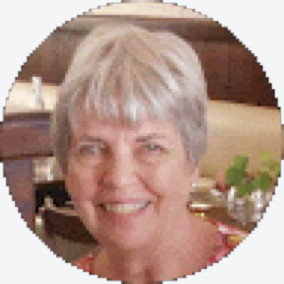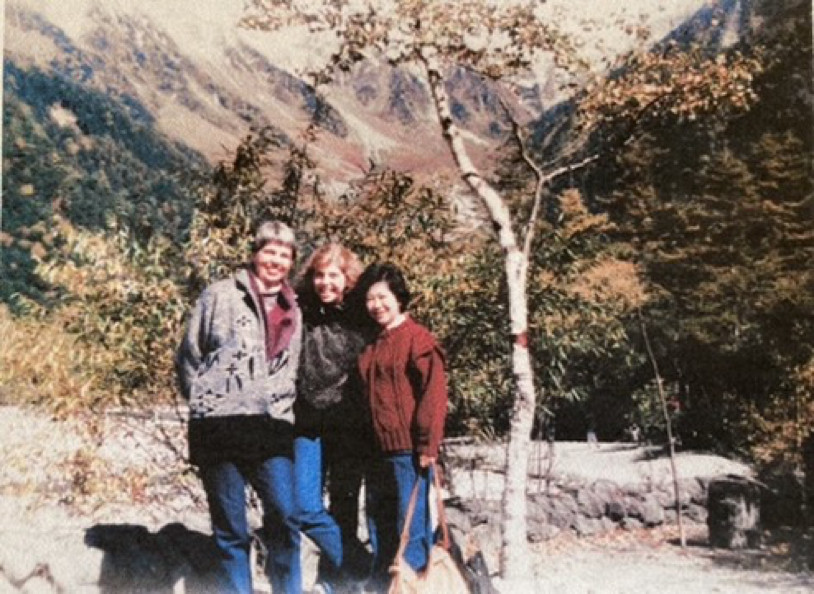Cleo Brimhall

Ms. Brimhall studied piano at Utah State University and graduated from the University of Nebraska with a Master of Music degree. She studied Suzuki piano with Dr. Kataoka in the United States and Japan, and she observed Dr. Suzuki teach in the United States and Japan. She has served on Boards with the SAU, the SAA, and the Piano Basics Foundation. In 1961 Ms. Brimhall started teaching piano, and she became a Suzuki piano teacher in 1981. Many of her students are now teaching piano which is a great pleasure to her. She resides in Salt Lake City, Utah where she has a Suzuki piano studio. She was director of the Intermountain Suzuki Institute. She is retired from teaching piano students but is still teaching teachers. She has the world’s most supportive husband. They have two daughters, one of whom is a Suzuki Violin teacher. The principles of Dr. Suzuki have been a guiding star in her life.
Instrument studied in Japan: Piano
Dates in Japan: I studied for one month with Dr. Kataoka in Matsumoto after studying with her annually in 1976 and for several years and workshops in the USA. I also studied periodically in Japan at the 10 piano concerts. I visited Japan in 1987 and periodically thereafter. I was fortunate enough to continue studying with her and Dr. Suzuki for the duration of their lives.
Memories
Lessons with Dr. Kataoka were by observation of teaching students and working with teachers. We learned that the study of the repertoire was actually the study of music and soul–how to bring out the nuances of tone and use that in playing the music of your soul. Tone is there to serve technique and technique is there to bring out the beauty of the expression. Each child (and adult) is different. We are only training the tools for them to use and how to listen carefully to the great artists and to themselves.
Watching the lessons being taught of other kenkyusei also reinforced the fact that everyone is different. Teaching was of the basic tool of music (the tone and the technique thereof).
Lessons were arduous, personal, and extremely truthful! However, concerts were celebrations! The prepared performances were expressions of the heart. There probably were a few note mistakes along the way, but they were irrelevant to the expression shared. The music was beautiful.
Dr. Suzuki and Dr. Kataoka would often speak to the teachers studying with them. They would speak about the philosophy and ideas that Dr. Suzuki had given us. They would encourage us to study thoughtfully as we progressed in our growth as teachers. They would remind us that the child is the most important thing in our studios, and we must share our hearts with them. Then they and we can share our hearts daily with those around us. We become nurturers of love. These are the things I have tried to share with my students as an integral, unspoken part of their lessons, and to impart to the many teacher trainees that I have been fortunate enough to work with. The lessons of Dr. Suzuki have totally influenced my life in the subsequent years. I have taught for forty-eight years since I first met Dr. Suzuki and Dr. Kataoka, and it has brought me great joy, especially in watching the growth of my students with their joy and service and love of life.
More Thoughts from Cleo Brimhall
So began my life as a Suzuki Mom – as a Suzuki Piano Teacher, and as an SAA Piano Teacher Trainer. My gradual understanding of the “the Suzuki Way” grew from year to year, from student to student. My acquaintance and study with Dr. Suzuki have been a shaping influences in my life.
In 1979 the Utah Symphony invited Dr. Suzuki to bring a group of students to Salt Lake City to participate in a fund-raising concert for the Symphony. Salt Lake City happens to be a sister city of Matsumoto. I ended up being on the planning committee for the concert as well as being official hostess. Being with him behind the scenes was an invaluable experience. I saw the love for the children as well as his humor and his keen sense of children. And I saw his determination for the best. He charged and lovingly inspired the performing children to do their BEST.
He was gracious in all social situations with the adults, but he was a trickster with the Suzuki teachers. Dr. Suzuki was known for his sense of humor – his games – his connection with children (of all ages). The Suzuki Association of Utah was still in its formative state. The violin teachers quickly organized an afternoon group class with Dr Suzuki. With his usual sense of love and respect, he quickly won the children’s hearts by having them stand behind him and playing Twinkle with them while he did fun things like jumping, kneeling, turning around. And all the dozens of children followed him having fun with every note! Now think of all the abilities he taught them - such as following a conductor or leader, multi-tasking (and more).
During this time Suzuki violin was thoroughly established in the U.S. However, American piano teachers were just discovering the Suzuki piano school of teaching. They jumped at the opportunity to begin teaching this Suzuki piano. However, there were miles to go before we began to have even a preliminary understanding of “the Suzuki Way.” I was fortunate to be able to visit my daughter who was studying violin at Dr. Suzuki’s school in Matsumoto. He even presented me with a certificate of three month’s study. Much to the horror of the secretaries and my delight he spelled my name Cleo Brimha!!. Other times I was able to take students to Japan for conferences and concerts and to see and learn from Dr. Suzuki on his home turf.
In this country we were always able to observe (by his demonstration) “the Suzuki way.” Kindness and fine character were absorbed by children and adults alike, through observation of the environment created by Dr. Suzuki. He delighted, or maybe I should say he lived the principle of the heart: A heart reaching out and helping (especially when no one else noticed those whose heart was feeling pain), a heart just knowing what to do and DOING it, a heart helping whenever and wherever it was needed, a heart helping a student notice another’s need, teaching that student when and how to do the heartfelt kindness needed by another – a heart full of fine character. A heart realizing about the heart and soul of a tone. He taught that music has a living soul that will reach out and touch the hearts and souls of the children. He taught the children that music has heart, an understanding of the deep beauty of music, music that is more than just the perfunctory notes on a page or a lesson in theory – but the true deep heart of music. He taught the fine character that involves the heart and always doing your best. With this heart he created the environment for the children and the adults studying at his school. In the study of the musical instruments, he was teaching more than the skills and performance. He believed in the great ability of every trainee to play and teach the violin “the Suzuki Way.” This way was the most important thing he could have given them.
A few of the teachings I remember that have been shared by Dr. Suzuki in word and action are:
- Excellence comes through JOY.
- Parents who have smiling faces have Children who have smiling faces.
- Where love is deep much can be accomplished.
- Fine spirit and beautiful heart come within a nurturing environment.
- Creating desire in the child is the parent’s duty.
- Respect each child.
- Show love to each child.
- Teach and develop all things by demonstration.
- Do not hurt anybody’s heart.
- Every child can be educated. It depends on how you do it.
- Tone has a living soul.
- Beautiful tone, beautiful heart
Dr. Suzuki also taught us that the children loved him not because he loved them but because he respected them.
I would like to finish with a personal experience. A 17-year-old boy wrote this letter to me as he left my studio to begin the next step in his life (I am sure many other Suzuki teachers have received such a letter.):
“You are always cheerful and positive. These years have made me want to be better, to be more kind… I’m grateful for the memories we made. I came as a child, and you stayed with me through the years (even when I didn’t practice). You helped me learn a skill that I will be able to use to bless others. You and Rodger are incredible people. I would trust you with everything. I’ll never forget, Cleo, the impact and change you had on my life.”
My eyes were filled with tears, but my inner self was seeing Dr. Suzuki smile.
—Cleo Ann Brimhall
Photo in Matsumoto
Photo of Cleo Brimhall with daughter Suzanne and Miss Mori at Kamikochi, 1986:


